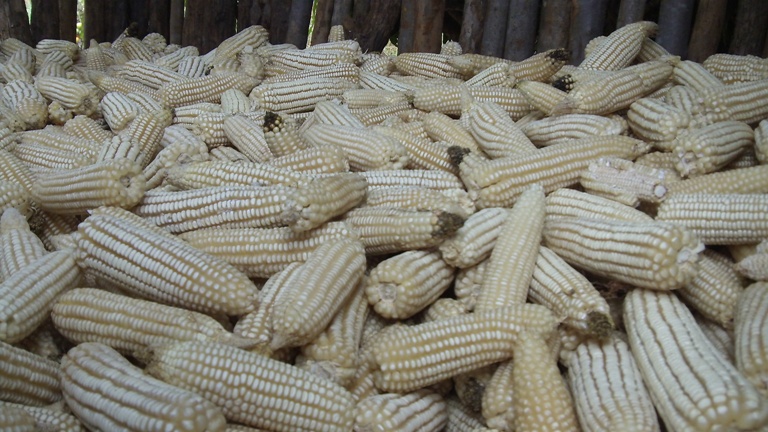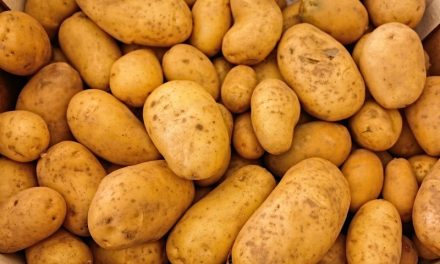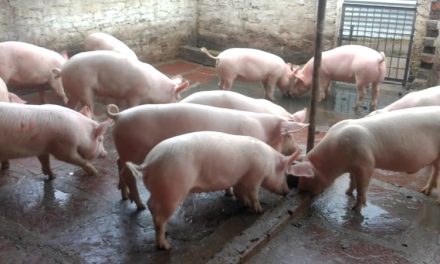Maize farming, often regarded as the heartbeat of the South Africa’s agriculture industry, presents an alluring prospect for those seeking a robust and rewarding business venture. With a rich heritage deeply rooted in maize consumption and production, South Africa offers a nurturing environment for the maize farming business. Maize holds a prominent place in the nation’s culinary and cultural heritage. As a staple food that graces countless dinner tables, its demand remains steadfast year after year. Maize is the most used feed grain in South Africa and staple food for the majority of South Africans. This steady demand, coupled with the nation’s diverse climatic zones and government support for the agricultural sector, forms the bedrock of the maize farming industry’s potential. Furthermore, the ability to contribute to local food security, explore export opportunities, and adapt to sustainable practices makes maize farming not only a financially lucrative endeavor but also a rewarding one, aligning perfectly with the broader goal of promoting agricultural sustainability and prosperity in South Africa. This article will outline how to start the maize farming business in South Africa, and the maize farming business plan – PDF, Word & Excel.
Before you start the maize farming business, there are some important decisions which you have to make. You have to decide on the size of your maize production business ie how many hectares of maize you will farm. There are many different maize varieties/cultivars, so you have to select which one you will farm, the season you are going to carry out your maize farming, and your target market. The size of your maize farming business will depend on the size of land you have, the amount of capital you have, and your target market. It’s important that you have a good maize production business plan before you venture into this business.
Market Research
Market research is a crucial initial step when embarking on the journey of starting a maize farming business in South Africa. To ensure the success and sustainability of your venture, it’s essential to gain a deep understanding of the market landscape. Firstly, identifying your target market is vital. Determine whether you plan to cater to local consumers, regional markets, or even international export markets, and define your target audience clearly. Furthermore, market research should encompass pricing strategies, regulatory compliance, and staying attuned to market trends and innovations. By calculating production costs and aligning your pricing strategy with market prices, you can estimate potential profits. Part of your market research should involve a comprehensive understanding of maize pricing dynamics within your target market. This includes identifying the prevailing market prices for maize and its related products, determining the factors influencing price fluctuations, and recognizing the seasonality of maize prices. Equally important is identifying your potential customer base and their buying behaviors. By delving into these aspects, you can strategically position your maize farming business, set competitive prices, and plan your production and marketing strategies to capitalize on favorable price trends and consumer demand fluctuations throughout the year
Land for Maize Farming Business
Land is a primary requirement and must be suitable for maize farming. To be profitable in the maize farming business, you should harvest as much yield as possible, and the type of soil on your maize farming has an impact on the yield. When it comes to maize farming, soil fertility is of utmost importance. The use of decayed leaves, compost or animal manure as organic matter is highly recommended to increase the soil fertility. The soil should have good drainage, and should not contain toxic materials. The soil should also have good water holding capacities. Maize can grow on a wide array of soil textures depending on the type of maize. pH of the soil for maize farming should be between 6-7.
Machinery & Equipment for Maize Production Business
You will need different kinds of machinery and equipment for your maize farming business. Land preparation is essential before you plant maize, and that requires different types of machinery and equipment. Subsistence maize farmers can prepare the land with hand held equipment and animal drawn equipment since their lands are small. However for commercial maize farming businesses, there is need for machinery and equipment such as tractors, fertiliser spreaders, combine harvesters, irrigation equipment. It will cheap to hire the equipment as an and when you need it, instead of buying.
Maize farming can be done with or without irrigation. If you are using irrigation, you will need power for the irrigation system. You can incorporate the use of electricity powered pumps, solar or fuel powered pumps. Higher level of mechanisation in your maize farming operations will lead to higher efficiency hence higher profitability. Your maize farming business plan should cater for the costs of purchasing or hiring machinery and equipment.
Maize Farming Inputs
You will require maize seeds to start maize farming in South Africa. Ensure that you buy quality maize seeds from certified and reputable suppliers. Poor quality maize seed will lead to low yields and poor quality of the harvested maize. The popular suppliers of maize seeds in South Africa include Pioneer Seeds, Monsanto, Pannar Seeds and Sensako. You can plant white or yellow maize as they are both in demand in South Africa.
The other important input in maize farming are fertilisers. Fertilisers increase the fertility of the soil thus supporting the growth of the maize. Maize requires a variety of essential nutrients for it to grow to its full potential. These nutrients include nitrogen, phosphorous and potassium. These nutrients should be provided via fertilisers and manure to promote growth of the maize crops. Weed control is also essential during maize farming, and this is done by applying herbicides. Fungicides and insecticides are essential for protection of your plants against insects and fungi. The costs of acquiring all these inputs should be included in your maize farming budgets.
Pests, Weeds & Disease Control
Managing pests, weeds, and diseases is an integral aspect of successful maize farming. Pests such as aphids, cutworms, and maize borers can devastate a maize crop if not properly controlled. Employing integrated pest management (IPM) practices is a recommended approach. IPM involves a combination of preventive measures, such as selecting maize varieties with natural pest resistance, and targeted interventions like the judicious use of pesticides when necessary. Regular field monitoring is essential to detect pest infestations early, enabling timely and effective responses to protect your maize crop. In addition to pest management, weed control is equally critical. Weeds compete with maize plants for essential resources like nutrients, water, and sunlight, which can lead to reduced yields. Effective weed management includes practices like proper land preparation, the use of pre-plant herbicides, and post-emergence weeding techniques. Employing herbicides as part of your weed management strategy, both before planting and post-emergence, can help keep weed populations in check. Additionally, the use of fungicides is pivotal in preventing and controlling diseases like maize rust and leaf blight. Furthermore, diseases like maize rust and leaf blight can pose significant threats. Disease-resistant maize varieties and sanitation practices, such as removing and destroying infected plants, are crucial components of disease control. By giving due emphasis to the responsible application of pesticides, fungicides, and herbicides, you can fortify your maize farming efforts and ensure the health and productivity of your crop.
Labour for Maize Farming Business
When doing maize farming business, you will need to hire part time farm workers as and when necessary. Part-time labourers will be required because there’s a lot of seasonal work to be done. Some of the activities will include land preparation, seed planting, applying fertilisers and manure, ploughing, harvesting, amongst several others. The part time farm workers should be paid according to the number of days worked so as to cut costs. You also require supervisors, farm manager, finance & accounting staff, and logistics staff depending on the scale of your maize farming business. The wages and salaries of your workers should be included in your maize farming business plan.
Maize Farming Business Model
In the maize farming business model, the process begins with securing suitable land for cultivation. Once you have your land, you plant maize seeds, initiating the growth cycle. Throughout the growth period, you must provide essential inputs, including regular watering, fertilizers to enrich soil nutrients, and pesticides to protect against pests and diseases. Additionally, labor costs are incurred for tasks such as planting, maintenance, and eventual harvesting. It’s essential to note that the specific timeline for harvesting typically falls between 4 to 6 months after planting. The potential for profit in maize farming lies in the substantial yield, which can range from 5 to 15 tonnes per hectare. This yield varies depending on factors like the chosen production system, the quality of inputs used, and the maize variety cultivated. The revenue from selling the maize surpasses the initial inputs, production costs, and operational expenses, resulting in good profits. The business model underscores the importance of efficient planning, diligent execution, and market-savvy strategies to maximize your returns in the maize farming business.
Market
The market for maize in South Africa is very huge and is ever increasing. The local demand for maize is about 10 million tonnes per year. South Africa also exports excess maize to other African countries. Maize has a variety of uses in South Africa. It’s consumed green maize. It is also milled to produce maize meal which is used in meals in South Africa. It can also be used to make maize oil which is used in cooking. Cereal can also be made using maize. Maize also has a variety of industrial uses, including in paper coating and sizing, soap, adhesives, rust proofing for metal surfaces, inks, paint, textiles, , salve and insecticides. Maize is also used to make livestock and poultry feeds, especially yellow maize. You can supply your maize to individuals, maize millers, animal feed producers, traders, food processors, organisations and industrial companies. Your maize business plan ought to include a proper market analysis and marketing plan to use in your maize farming business.

Maize
Keys to Profitability in Maize Farming Business
Achieving profitability in your maize farming business in South Africa hinges on a multifaceted approach that encompasses several key factors. First and foremost, it’s crucial to invest in high-quality inputs and adopt sound agronomic practices. This includes using top-notch seeds, fertilizers, and pest control methods, while also implementing efficient planting, irrigation, and soil management techniques. Such measures are essential in optimizing crop health and yield, setting the stage for financial success.
Selecting the right maize varieties is another pivotal aspect. By choosing varieties that align with your region’s specific conditions and meet market demands, you can enhance your chances of success. Diversification and risk management also play a vital role, as planting multiple crops alongside maize can help mitigate potential losses due to weather or market fluctuations. Additionally, maintaining a market-oriented approach is essential. Staying abreast of market trends and consumer preferences, diversifying revenue streams, and controlling costs are integral elements that enable you to tailor your production to market demands.
Effective post-harvest handling practices, budgeting, financial management, and networking with industry stakeholders are all crucial components of a successful maize farming business model. Furthermore, a commitment to continuous learning and adaptation to new farming techniques and technologies will keep your venture competitive and resilient. By incorporating these strategies and approaches, you can unlock the full potential of your maize farming venture in South Africa, positioning it for profitability and long-term sustainability.
Advantages of Maize Farming Business in South Africa
Starting a maize farming business in South Africa comes with a plethora of advantages that make it an appealing venture for both seasoned farmers and newcomers to the agricultural sector. One of the foremost benefits is the steady demand and market stability of maize in the country. As a staple food, maize enjoys unwavering popularity, ensuring a reliable customer base for farmers. South Africa’s well-established maize industry further reinforces market stability, reducing the risk of unpredictable price fluctuations.
The geographical diversity of South Africa’s climatic zones is another advantage that maize farmers can leverage. This diversity enables maize cultivation throughout the year in different regions, allowing farmers to adapt their planting and harvesting times to local conditions. Moreover, the country’s varied climatic zones help mitigate the impact of adverse weather events, enhancing the resilience of maize farming.
Maize farming in South Africa offers opportunities for expansion beyond domestic borders. The country has the potential to export maize and its products to neighboring nations and international markets, providing farmers with additional revenue streams. Furthermore, the government’s support for the agricultural sector through subsidies, grants, and technical assistance plays a crucial role in reducing the financial burden on maize farmers and encourages the adoption of sustainable farming practices. Overall, a maize farming business in South Africa not only promises a stable income but also contributes to local food security, making it a well-rounded and advantageous venture within the agricultural landscape.
PRE-WRITTEN MAIZE FARMING BUSINESS PLAN (PDF, WORD AND EXCEL): COMPREHENSIVE VERSION, SHORT FUNDING/BANK LOAN VERSION AND AUTOMATED FINANCIAL STATEMENTS
For an in-depth analysis of the maize farming business in South Africa, purchase our maize farming business plan. We decided to introduce the business plans after noting that many South Africans were venturing into the maize production business without a full understanding of the industry, market, how to run the business, the risks involved, profitability of the business and the costs involved, leading to a high failure rate of their businesses.
Our business plan will make it easier for you to launch and run a maize production business successfully, fully knowing what you are going into, and what’s needed to succeed in the business. It will be easier to plan and budget as the maize production business plan will lay out all the costs involved in setting up and running the maize farming business. The business plan is designed specifically for the South African market.
USES OF THE MAIZE PRODUCTION BUSINESS PLAN (PDF, WORD AND EXCEL)
The maize production business plan can be used for many purposes including:
- Raising capital from investors/friends/relatives
- Applying for a bank loan
- Start-up guide to launch your maize farming business
- As a maize farming project proposal
- Assessing profitability of the maize farming business
- Finding a business partner
- Assessing the initial start-up costs so that you know how much to save
- Manual for current business owners to help in business and strategy formulation
CONTENTS OF THE MAIZE FARMING BUSINESS PLAN (PDF, WORD AND EXCEL)
The business plan includes, but not limited to:
- Market Analysis
- Industry Analysis
- 5 Year Automated Financial Statements [ Income statements, cash flow statements, balance sheets, monthly cash flow projections (3 years monthly cash flow projections, the remaining two years annually),break even analysis, payback period analysis, start-up costs, financial graphs, revenue and expenses, Bank Loan Amortisation]
- Marketing Strategy
- Risk Analysis
- SWOT & PEST Analysis
- Operational Requirements
- Maize farming guide (Technical Details of how to plant, grow and harvest the maize)
- Operational Strategy
- Why some South Africans in the maize production business fail, so that you can avoid their mistakes
- Ways to raise capital to start your maize farming business in South Africa
- Directory [Contact Details for South African suppliers of inputs (seeds, fertilisers, equipment etc) and contacts of maize farming training companies in South Africa]
The Maize Farming Business Plan package consist of 4 files
- Maize Farming Business Plan – PDF file (Comprehensive – 95 pages)
- Maize Farming Business Plan – Editable Word File (Comprehensive – 95 pages)
- Maize Farming Business Plan Funding Version – Editable Word File (Short version for applying for a loan – 44 pages)
- Maize Farming Business Plan Automated Financial Statements – (Editable Excel file)
The financial statements are automated. This implies that you can change eg the number of hectares, maize price per KG etc, and all the other financial statements will automatically adjust to reflect the change.
GET THE MAIZE FARMING BUSINESS PLAN (PDF, WORD AND EXCEL) - R500 Only.
We decided to make the business plan affordable to anyone who would want to start the business, and the price for the pre-written business plan is only 500 Rand.
We have several payment methods which you can use.
Payment Method 1 (Visa card, Mastercard, Credit card, Debit Card)
Click Buy Now below to purchase. After you have purchased, you will instantly see the download link for the business plan package on the screen. We will also email you the download link. Get instant access to the business plan now!
If you want to purchase multiple business plans at once using Visa Card/MasterCard then click here: Business Plans Store
The business plan package is a zipped compressed file containing the PDF, Word and Excel documents. To open the package after downloading it, just right click, and select Extract All. If you have any problems in downloading and opening the files, email us on sales@bizbolts.co.za and we will assist you.
Payment Method 2 (Instant EFT - FNB, Absa, Standard Bank, Nedbank, CapitecBank, Investec, TymeBank and African Bank. )
Click Buy Now below to purchase. After you have purchased, you will instantly see the download link for the business plan package on the screen. We will also email you the download link. Get instant access to the business plan now!
If you want to purchase multiple business plans at once using Instant EFT then click here: Business Plans Store
The business plan package is a zipped compressed file containing the PDF, Word and Excel documents. To open the package after downloading it, just right click, and select Extract All. If you have any problems in downloading and opening the files, email us on sales@bizbolts.co.za and we will assist you.
Other Payment Methods
- Cash deposit into our FNB Company Bank Account
- EFT Transfer to our FNB Company Bank Account
Call/Whatsapp us on +27606334830 for the other payment methods. (Whatsapp us by clicking the link https://wa.me/27606334830). Email: sales@bizbolts.co.za .











